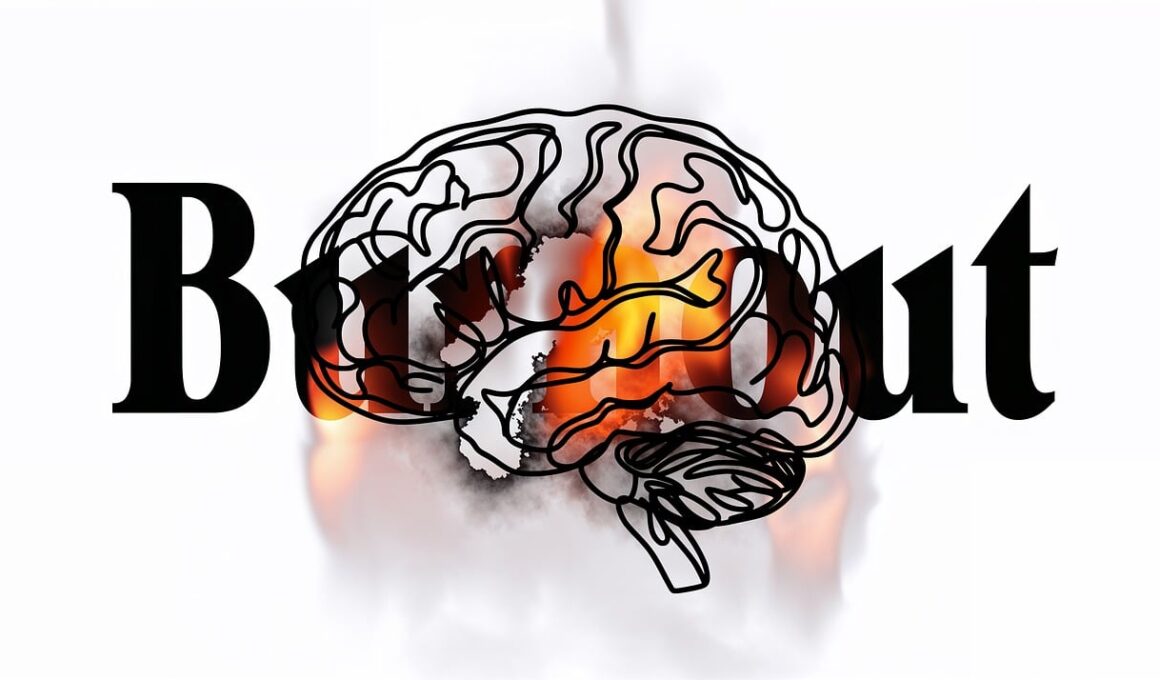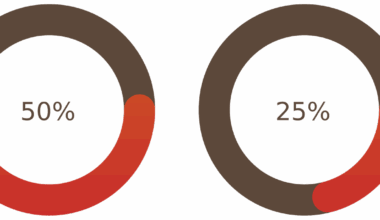Biofeedback and Cognitive Behavioral Therapy: A Stress Management Duo
Stress is an inevitable part of life that can significantly affect both our mental and physical health. The intersection of biofeedback and cognitive behavioral therapy (CBT) offers a holistic approach to managing stress. By employing these methods, individuals can enhance their awareness of physiological functions while simultaneously improving their emotional responses. Biofeedback teaches individuals to become more aware of their body’s automatic processes, such as heart rate and muscle tension. This awareness is crucial since many stress responses occur unconsciously. By gaining control over these responses, individuals can reduce their physiological stress levels. Meanwhile, CBT focuses on addressing negative thought patterns that contribute to stress. This therapeutic approach encourages clients to recognize and challenge these harmful thoughts. Together, biofeedback and CBT can provide a comprehensive toolkit for managing stress effectively. This synergy empowers individuals to take charge of their well-being, enabling a more balanced and fulfilling life. Not only do these techniques improve stress management, but they also promote overall mental health. Engaging in both methods can lead to sustainable change and long-term benefits for individuals struggling with stress.
Understanding Biofeedback
Biofeedback is a technique that teaches individuals to control physiological processes through real-time feedback. The process relies on monitoring devices that measure bodily functions like heart rate, muscle tension, and skin temperature. The goal of biofeedback is to help individuals gain awareness of their stress responses. This technique can facilitate relaxation and aid in developing healthier coping mechanisms. When users view their body’s data in real-time, they can recognize when they are entering a stressful state. Learning to manage these processes can lead to significant improvements in emotional well-being. For instance, studies have shown that individuals trained in biofeedback can lower their blood pressure, reduce anxiety levels, and enhance overall emotional regulation. This practice has gained traction and popularity in clinical settings, particularly for stress management. It enables personalized strategies tailored to an individual’s unique responses. Biofeedback offers an empowering avenue for individuals wanting to reclaim control over their stress trajectories. By integrating biofeedback into daily routines, it becomes possible to cultivate a consistent practice of self-awareness and proactive stress management strategies. Ultimately, it encourages a more profound understanding of one’s self.
One of the reasons biofeedback is effective is due to its ability to facilitate a more robust mind-body connection. When individuals become aware of their physiological responses, they gain insight into their emotional states. This connection plays a crucial role in stress management as it highlights the interplay between the mind and body. By utilizing biofeedback, individuals can learn to change maladaptive responses to stress. Creating a state of calm and relaxation becomes achievable when one knows how to control physiological reactions. As people practice these techniques over time, they observe how their bodies react to various stressors. This awareness can lead to transformative changes in their approach to handling stressful situations. By incorporating biofeedback into one’s stress management plan, users can experience heightened resilience against challenges. The data and feedback provided help in forming new habits and behaviors. A consistent practice of biofeedback fosters empowerment and encourages individuals to take charge of their emotional health. Ultimately, this newfound awareness creates opportunities for profound personal growth and improvement. Coalescing biofeedback with complementary therapies can yield even greater stress reduction outcomes.
The Role of Cognitive Behavioral Therapy
Cognitive Behavioral Therapy (CBT) emphasizes the importance of recognizing and modifying negative thought patterns. This therapeutic approach blends well with biofeedback to enhance stress management techniques further. Flip negative beliefs and thoughts around can significantly impact one’s emotional responses to various stressors. CBT provides clients with the tools to identify these maladaptive thoughts and beliefs. By challenging and restructuring these thoughts, individuals can cultivate a more balanced and positive outlook. This process of cognitive restructuring complements biofeedback by addressing the psychological roots of stress. As clients become more cognizant of their thought patterns, they can utilize biofeedback techniques to manage physiological stress reactions. CBT can empower individuals to change their narratives around stress, viewing it as a challenge rather than a hindrance. Through practice, individuals learn to approach stress with renewed confidence and adaptability. Together, biofeedback and CBT form a synergistic relationship that promotes holistic stress management. This combination equips individuals with skills not just for immediate relief but for long-term resilience. Clients equipped with these combined strategies can navigate life’s inevitable stresses more effectively, leading to healthier day-to-day experiences.
Integrating biofeedback with CBT also leads to improved self-efficacy. Clients engaged in this combined approach report feeling more capable of handling stress and anxiety. The empowerment gained through biofeedback enhances the effectiveness of cognitive strategies learned in CBT. Clients not only learn to manage physiological responses but also develop a more profound understanding of their cognitive processes. This integration fosters resilience by equipping individuals to tackle stressors with a proactive mindset. Regular practice of CBT techniques can reinforce the skills learned through biofeedback. Individuals exhibit improved capacity to maintain calmness in the face of adversity. Furthermore, this integrated approach has been shown to provide long-lasting benefits. After completing structured programs in biofeedback and CBT, clients often indicate reduced levels of stress and anxiety even in challenging situations. They report greater emotional well-being and a sense of mastery over their stress responses. Personal stories highlight remarkable transformations in individuals who blend these two methodologies in their lives. They foster a pathway towards sustainable habit formation that promotes ongoing resilience. As such, the integration of biofeedback and CBT serves as a powerful duo in the fight against stress.
Practice and Implementation
To derive the maximum benefit from biofeedback and CBT, individuals need to adopt consistent practices. Regular implementation of both techniques ensures that the skills developed become second nature over time. Creating a structured routine around these practices can amplify the effects on stress management. It is beneficial to incorporate structured sessions of biofeedback training, which can be carried out using specialized devices or apps. Meanwhile, attempting to practice CBT techniques—such as cognitive restructuring and live journaling—on a daily basis fosters habit formation. Individuals can benefit from working with a professional therapist or coach specialized in these methods for guidance and support. Engaging in reflective practices can enhance the effectiveness of both biofeedback and CBT practices. Additionally, incorporating mindfulness exercises, such as meditation and deep breathing, can complement these techniques. Group therapy or support circles focusing on stress management can further reinforce learning and encourage accountability. By sharing experiences, clients develop deeper insights into their challenges. This engagement fosters camaraderie and mutual support. The implementation of both biofeedback and CBT can lead to a comprehensive strategy for addressing stress, enriching clients’ lives in meaningful ways.
Individuals may notice distinct benefits of combining these stress management approaches. The continuous feedback and reflective insights they gain lead to a better understanding of stress triggers. This increased awareness can translate into proactive measures taken during challenging times. As clients harness the techniques from both biofeedback and CBT, they often report feeling less overwhelmed. Generating practical strategies for dealing with stressors becomes streamlined. Empowered with tools and techniques from both methodologies, individuals often experience an overall improvement in quality of life. The balance of mind and body fosters a sense of wholeness, enabling clients to navigate life’s challenges effectively. Furthermore, they typically experience enhanced emotional resilience and mental clarity. These improvements can manifest in various areas of life, including professional and personal realms. The comprehensive approach provides an avenue for individuals to reflect on and reshape their relationship with stress. With ongoing practice, the synergy often leads to enduring change. In conclusion, the effective combination of biofeedback and CBT offers a remarkable strategy for stress management. This duo not only provides immediate relief but lays the groundwork for sustainable well-being.
Conclusion
Incorporating biofeedback and Cognitive Behavioral Therapy into everyday stress management can fundamentally change one’s relationship with stress. By merging the physiological with the psychological, clients gain a complete toolkit for navigating life’s challenges. Each approach complements the other, fostering resilience, awareness, and empowerment. The skills acquired through this combination not only serve individuals in times of stress but also promote everyday well-being. As individuals learn to recognize and manage their bodily responses through biofeedback, they simultaneously learn to reshape their thought patterns through CBT. The result is a comprehensive strategy that equips clients with lasting tools for self-regulation in stressful situations. This integrated approach emphasizes the importance of a holistic focus on mental health. Therefore, seeking professional assistance in utilizing both methods can lead to transformative outcomes. Many have found that the diverse skill set acquired through their practice has a ripple effect, benefitting various aspects of their lives. By understanding the brain-body connection, individuals can attain sustainable emotional balance. Ultimately, this duo stands out as a potent way of managing stress effectively, enabling individuals truly to take charge of their mental health journeys.


